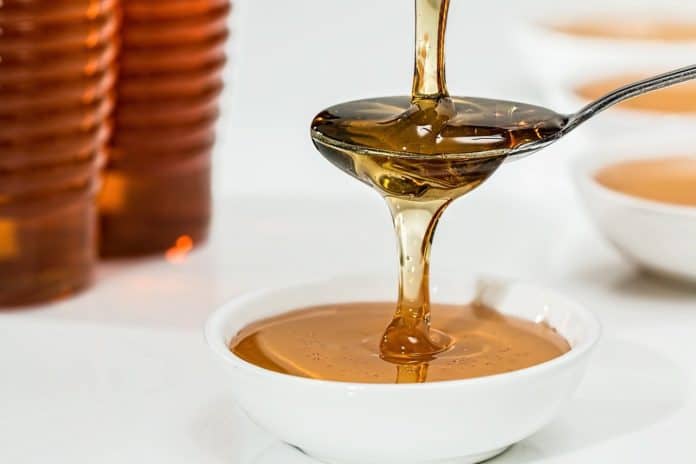Last Updated on August 15, 2022 by The Health Master
Humans have a natural urge to look attractive. Different societies used alternative ways to fulfill this urge, ranging from using ornaments to coloring eyebrows or eyelashes in the past.
Even a number of our Vedic literature, like Manusmiriti or Vishnu Purana, has mentioned the codes of personal hygiene. Archaeological excavation has also confirmed the utilization of private hygiene products in past.
In times past, till 1900, personal hygiene products were only available to the highest strata of society, especially actors.
It had been the first 20th century, that saw the establishment of a number of the foremost popular care companies like Loreal & Maybelline.
This was the time when folk started accessing these products through general stores.
Today, the personal care industry generates a staggering $250 billion in annual retail sales worldwide.
In India, personal care products are gaining popularity around the same time & the market is predicted to succeed at $20 billion by 2025.
Today, the private hygiene industry has developed a replacement section called mom & baby care, which has exploited the urge of family and fogeys to supply the expecting mother and newborn with the simplest of care.
The initial entry during this segment was from well-known pharmaceuticals.
However, with time there was an increasing demand for natural products for the babies and mothers to eliminate any chances of bad effects on their health, which paved way for the businesses like Dabur, and Himalaya to enter the segment.
Also read: The sunshine vitamin: Vitamin D
As Ayurveda was the inspiration of the new entries, they developed a distinct segment of clientele themselves who didn’t want to use chemicals and relied on the facilities of nature and Ayurveda for the hygiene of their mothers and babies.
Recently, there has been a flood of mother & baby products by new-age companies who claimed to be natural but are those products really natural?
Marketing has always been questioned within the care and hygiene industry. The way marketing teams of brands play with words to realize their financial goals has been reiterated & demonstrated multiple times.
Time & again, questions are raised about the utilization of celebrities or misleading ad campaigns to extend the demand for products.
Surely, marketing teams have their own rationale behind their campaigns but it had been not until recently that a product chemically is marketed as a natural product.
This is often a replacement low of selling ethics that the new-age companies are promoting.
New-age brands like MamaEarth, who have recently entered the universe of mom and baby care products, have multiple products that they claim to be natural, sometimes directly & sometimes through e-commerce websites.
However, if someone goes through the ingredient list, it’s not difficult to understand that products contain chemicals.
Surely, they need to be using chemicals that haven’t any scientific evidence of doing any harm to the body but by claiming those products to be natural, they’re surely cheating the customer.
Sometimes, the ingredient list contains secret ingredients that nobody knows are natural or chemical. On the other hand, if we see the products of Himalaya, Dabur, or Emami, the established old ones, despite using the maximum natural ingredients, they never claim their products to be natural.
Businesses got to understand that there’s a difference between a secure product & a natural product. Calling a product with chemical ingredients, natural rather than safe is the same as calling a non-veg dish vegetarian because you used the chicken from the simplest meat shop, which has the history of providing the simplest meat with no chances of bird flu.
Also read: Skin care: expert advice
Another concerning trend, which is visible within the marketing strategy of the new-age brands like TheMomsCo, is endorsing the products through foreign agencies.
The credibility of the claims like “Australian Certified” will remain questionable until there’s a national body that checks out the credibility of the claims made by these companies.
The routine to become the number 1 company within the market & to grab the most important share within the market pie, the new companies are exploiting the requirements of their customers through misleading labeling.
As there’s no strict scrutiny by any agency, there’s no fear of any consequences. The layman rarely has the time or resources to fight against such misleading labels or advertisements until it affects them in the worst way possible.
It is understandable that each company wants to set themselves apart from the competition, and it’s well within their rights to promote and advertise their products. However, it should be done by keeping morals high and following marketing ethics.
Until the govt doesn’t form workplace which looks into the labeling standards for private hygiene and mother & baby care products, it’s the moral responsibility of every single player within the market to not exploit the user and practice ethical marketing to form their customer and informed buyer rather than making them a fooled buyer.
Also, it’s the responsibility of each buyer that they don’t pass the massive fonts of “Natural” but spend a while browsing the ingredient list.
by Dr Chandrakant S Pandav
Former HoD, Department of Community Health, AIIMS, New Delhi
Former President Indian Public Health Association








